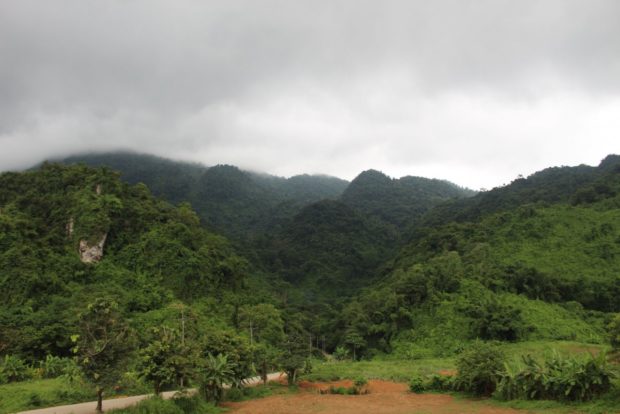BANGKOK — An environmentalist has urged that no drastic changes be made to Chiang Rai’s Tham Luang Cave amid efforts to repair damage done in the recent rescue drama and as thoughts turn to creating a tourism attraction.
The Department of National Parks, Wildlife and Plant Conservation (DNP) is currently working on the cave’s environmental recovery following the rescue of 13 members of a football club who were trapped inside.
Nonn Panitvong, Thailand’s leading expert on biodiversity and ecosystems, wants the work to proceed with caution.
The cave in the Tham Luang-Khun Nam Nang Non Forest Park has a delicate ecosystem that could be affected unintentionally despite the department’s noble goal, resulting in irreversible damage and even the extinction of some resident species.
“Caves have unique but fragile ecosystems and are the habitats of diverse species of fauna and flora,” Nonn said. “This is because the separateness of the caves’ environment to the outside world supports the development of distinctive ecosystems, just like remote islands in the ocean.
“Caves like Tham Luang are home to many endemic species that cannot be found anywhere else beyond that specific cave.”
Nonn pointed out that the stark difference between caves and their surroundings leave the caves highly sensitive to changes in the environment. He suggested that any restoration work or development in and around Tham Luang should be neither drastic nor permanent.
“There’s been no ecological survey, so we don’t have essential information about biomes inside the cave yet and have to take extra care to avoid risks. We could unintentionally wipe out unique unexplored species,” he said.
DNP deputy director-general Chongklai Worapongsathorn said preservation of the cave’s ecosystem had a high priority in the effort to restore the natural environment following the rescue operation, which saw hundreds of people and tonnes of equipment coming and going every day for two weeks.
Chongklai said the massive operation caused much damage not only to the cave ecosystem but also to the entire forest park, which had to be disturbed to drain floodwater from the cave. And a lot of equipment is still sitting inside the cave, he said.
“While the rescue operation was underway, finding and safely rescuing the trapped footballers was the paramount goal,” he said.“So the DNP had to set aside enforcement of the national parks law and allow all necessary alterations to the cave and mountain to be done to facilitate the rescue mission.”
As part of a designated forest park, the cave in Chiang Rai’s Mae Sai district is strictly protected from unauthorized construction, alterations or demolition under the National Parks Act. Violators face criminal prosecution.
Chongklai said his department has already cleared away water pipes used to keep run-off from two streams from flowing into the cave. The streams were now running freely again, he said.
Man-made disturbances to the crest of the mountain above the cave – the result of searches for alternative entranceways into the cave – would be repaired soon, he said. More than 100 sinkholes were explored during the rescue mission, but visible alterations were few in number.
Chongklai admitted, however, that the extent of damage to the cave interior was still not known “because right now the cave is flooded again”.
“We have to wait until the cave is dry and we can safely access it again to survey the damage and retrieve the leftover equipment.”
While proposals are being considered to develop Tham Luang cave as a tourist attraction, environmental preservation remains the most important task, he said.
The database of the Natural Resources and Environmental Policy and Planning Office indicates that Tham Luang is a semi-dry karst cave, normally flooded during the rainy season but dry and accessible at other times of the year.
In terms of geological significance and ecosystem fragility, it lists Tham Luang as a highly endangered but “high-value” natural attraction. The office deemed it “very precious” and recommended it be urgently conserved.
